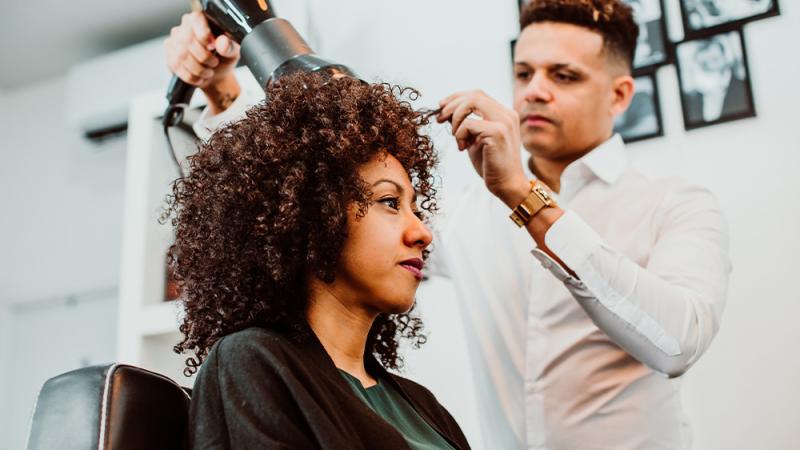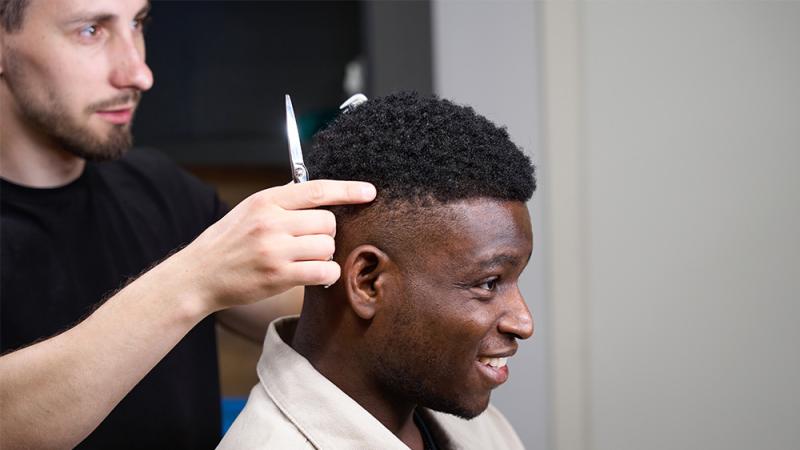Vermont, Maine, and Washington will now mandate their state-licensed hair-care professionals are trained and tested on curly, coily, and wavy hair — bringing the total number to eight U.S. states which enacted similar legislation making cosmetology education and licensing more inclusive.
The landmark bills were signed into law by the governors of those states following this year's legislative sessions.
Existing states with this mandate are California, Minnesota, Connecticut, New York, and Louisiana, the latter of which became the first state to pass such legislation in 2021.
The three most recent states will give cosmetology schools a year to update their curricula to include education on cutting, coloring, and caring for hair of all textures.

"Every aspiring professional deserves an education that reflects the full spectrum of hair types and textures,” says David Greenberg, CEO of L’Oréal USA, which has championed such legislation, “and every client deserves access to stylists who are trained to meet their unique needs.”
A History of Exclusion in Cosmetology Education
Until 2021, textured hair has been left out of most cosmetology programs in mainstream U.S. beauty schools — even though more than 65% of Americans have curly, coily, or wavy hair.
For generations, this disparity resulted in hair-care professionals who enter the workforce unprepared to care for all types of hair; clients who struggle to find stylists knowledgeable about their hair type; and widespread segregation among beauty and barber businesses based on race.
This wave of change is driven by the Texture Education Collective (TEC), an industry alliance formed by the Professional Beauty Association along with hair-care leaders L’Oréal, Aveda, DevaCurl, and Neill Corp. The goal: to make textured hair education a standard part of mainstream cosmetology programs nationwide.

That mission is carried out state by state, as legislatures pass bills requiring state cosmetology licensing exams to include textured hair types. That law, in turn, prompts beauty and barber schools in the state — which focus on preparing students for these tests — to include the necessary training in their cosmetology programs.
After the laws are passed, TEC assists cosmetology schools with resources and support in updating their programs to include texture education without increasing the number of course hours.
State Leaders Step Up for Equity
Washington's new law is especially significant, as it's the first of its kind in the Pacific Northwest. Meanwhile, Vermont and Maine's move to require textured hair education adds to a growing movement in the Northeast.

Elected officials in those states who championed the recently signed bills were Washington Rep. Melanie Morgan, Vermont Secretary of State Sarah Copeland Hanzas, and Maine Sen. Rachel Talbot Ross.
The TEC advises those who want their states to adopt similar legislation to sign and share its petition on the issue. This is what the TEC has been using to convince lawmakers that a significant portion of their constituents are asking for the change.
Related Articles:
Texture of Change's First Summit Aims to Break the Status Quo
Actors, Beauty Founders Push for Inclusive Cosmetology Education
Untangling Textured Hair Training in America
The Woman Who Put Texture Mannequins in Beauty Schools